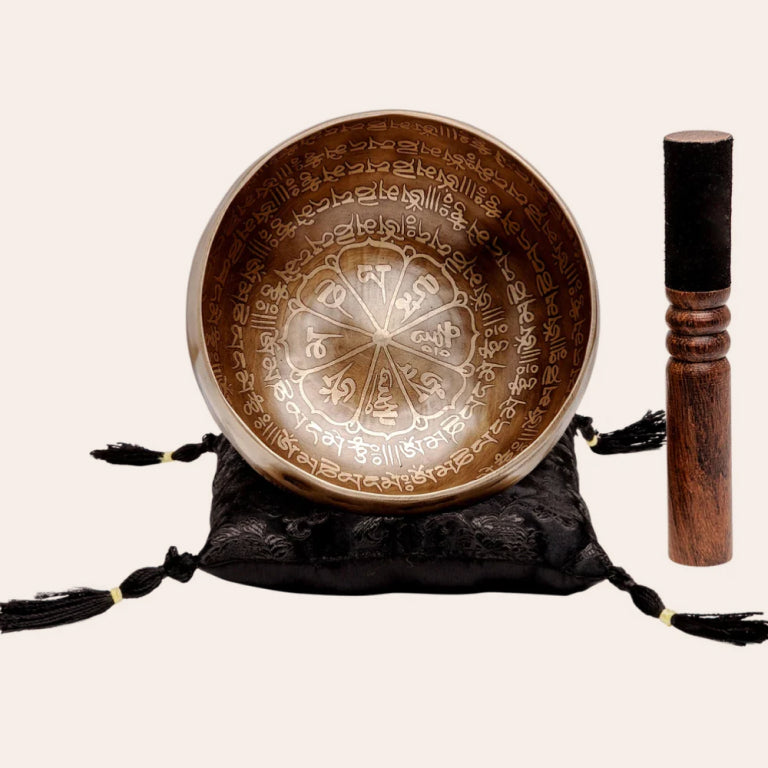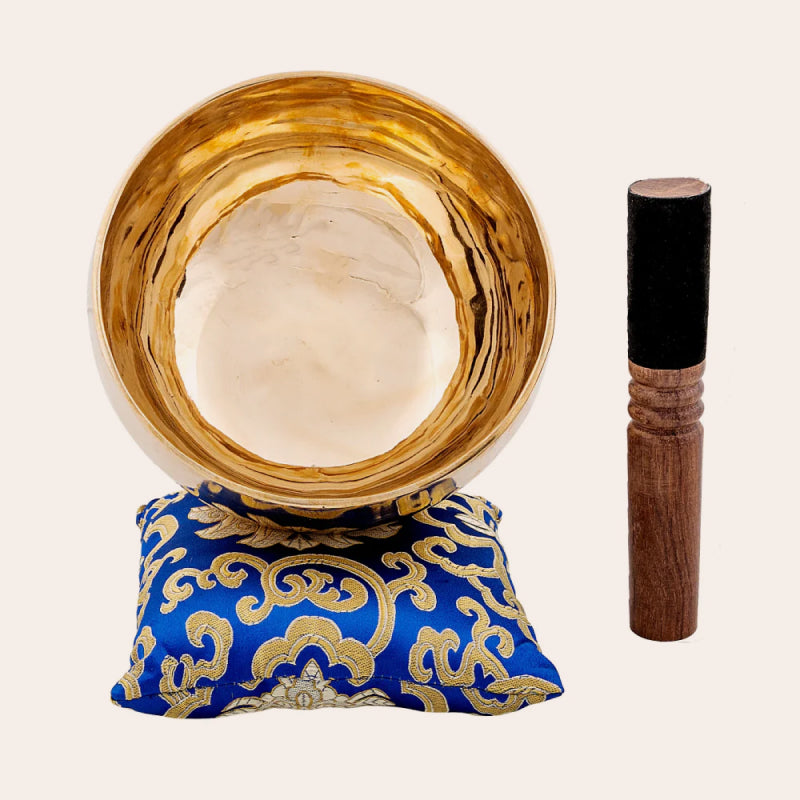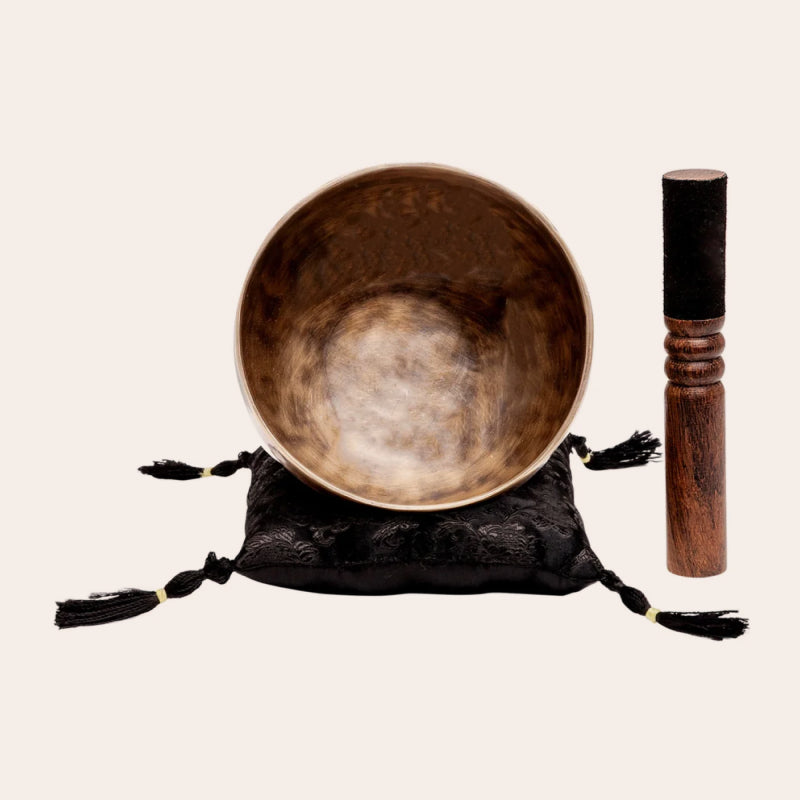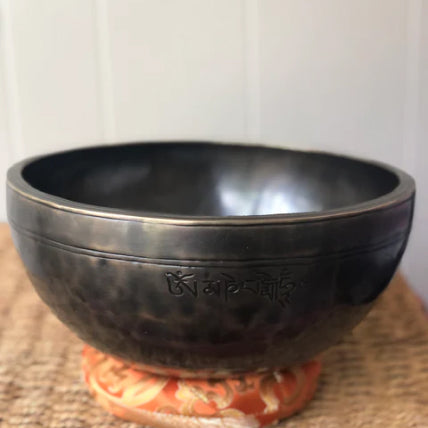Can I Use Singing Bowls if I Practice Another Religion?
Himalayan bowls are often associated with Buddhism; then, it must be a Buddhist thing, right?
So, can you use singing bowls if you follow another religion? Do they align with the Holy Books like Bible, Torah, and Qur’an?
We agree -- it’s a sensitive question and needs a well-thought-out answer.
Singing bowls didn’t begin as a Buddhist or Hindu religious instrument, but most likely as a means for everyday household needs, storing grains, or use as currency.
Would you say a standard bell is a religious item?
Himalayan bowls are nothing but inverted bells. They’re called standing bells apart from cup gongs and singing bowls.
Rather than casting away the thought, let’s find out what the holy books and religious leaders make of sound bowls.
Ready? Read on…
Is It Wrong To Use Singing Bowls If I Practice Another Religion?
At it's core, a singing bowl is a musical instrument. It produces sound frequencies.
The item itself holds no religious connotations for the makers or traditional users.
If you check the history of singing bowls, they started as grain storage and currency. Nevertheless, these bowls became a part of eastern meditative practices owing to their acoustic properties.
Call it Himalayan bowls, singing bowls, sound bowls; essentially, these are inverted bells where the bell’s rim faces up. That’s why they’re popular as standing bells or cup gongs (like a miniature version of gong in a different position) too.
While it’s true singing bowls were first used in the Eastern world, bells were actually called ‘church bells’ back in the day. But does that mean bells were unique to Christianity?
Just like the sound of rain or white noise can calm you down, specific aesthetics govern singing bowl sounds that are soothing.
We aren’t here to disprove any belief system, but rather to shed light on who we think could benefit from this practice (hint -- anyone!)
That said, let’s see what the world’s popular religions think about it.
Are Singing Bowls "Allowed" In Christianity?
Bells have been used for a long-long time in Christian worships and prayers. Traditionally, they were a way to beckon believers to the church for communal services or announce established prayer times during different times of the day.
Indeed, a bell’s sound is quite different from that of a singing bowl, but the science of sound remains quite the same. Let’s see if bells are allowed in Christianity.
Exodus 28: 33 to 35 says, “Make pomegranates of blue, purple and scarlet yarn around the hem of the robe, with gold bells between them.”
Apart from signifying bells as a mark of sanctity, Holy Bible also urges us to meditate on thoughts in Proverbs 15: 28- “The heart of the righteous meditates upon the faith.”
Meditation seems in alignment here as well.
In fact, Bible also encourages pondering over thoughts (what we call meditation these days) with peace and morality.
According to Genesis 24:63- “And Isaac went out to meditate in the field toward evening. And he lifted up his eyes and saw, and behold, there were camels coming.”
Joshua 1:8 says, “This Book of the Law shall not depart from your mouth, but you shall meditate on it day and night, so that you may be careful to do according to all that is written in it.”
These Psalms references shed some additional light-
- Psalms 104:34- May my meditation be pleasing to him, for I rejoice in the Lord.
- Psalms 19:14- Let the words of my mouth and the meditation of my heart be acceptable in your sight, O Lord, my rock and my redeemer.
- Psalms 119:15- I will meditate on your precepts and fix my eyes on your ways.
- Psalms 143: 5- I remember the days of old; I meditate on all that you have done; I ponder the work of your hands.
There are many more verses on meditation and the holiness of bells in the Bible.
They all agree meditating on God Almighty reveals more of his plans for us and helps us pray deeper. So, make sure to dwell on Christian Gods to prevent any conflict when you use these bowls.
Does Judaism Permit Using Sound Bowls?
Let’s try to understand what Jewish leaders have to say about singing bowls in Judaism.
According to Joy Krauthammer, “Rabbis–and leaders of all denominations–offer meditations and Torah teachings, and I accompany them by playing the healing bowls–before, during, and/or after the meditation and wisdom teaching.”
She goes on to say meditation, breathwork, and resonating sounds help participants “in being henayni or present to the Jewish wisdom shared.”
A few verses to ponder from the Torah on acoustics for worship-
- Psalm 49:5- “I will set forth my truth to the music of the harp.”
- 1 Chronicle 15:16- “David commanded the commanders of the Levites to appoint their brothers as singers and to play on musical instruments, harps, lyres, and cymbals, to make a loud sound of rejoicing.”
When you think about meditation, “Jewish Meditation” is older than all the others.
Rabbi Sam Feinsmith says, “The early literature points to a variety of techniques for permuting Hebrew letters in the mind’s eye, visualizing otherworldly celestial realms, and communing with the Deity.” And, “To support the work of cultivating wisdom, I practice mindfulness meditation.”
Are Singing Bowls Halal In Islam?
When it comes to Islam, Muhammad says, “Sometimes (the word of Allah) is like the ringing of a bell, this form of Inspiration is the hardest of all and then this state passes off after I have grasped what is inspired.”
When it comes to meditation, The Prophet meditated continuously about the word of God, and it was during such a time that he first received revelations about the Qur’an too.
Here are a few verses to think about from the Holy Book:
- 3: 17- “They are steadfast, truthful, submitting, charitable, and meditators at dawn.”
- 17: 79- “During the night, you shall meditate for extra credit, that your Lord may raise you to an honorable rank.”
In all essence, Muslims say singing bells meditation isn’t haram if you’re true to your faith and used for ibāda (worshipping) Allah.
How To Use Singing Bowls Without Hurting Your Religious Beliefs
Singing bowls are inverted bells or bells positioned upside down. The best thing is the singing bowl produces a soothing sound much like the sound of nature, rain, or wind.
In fact, singing bowls may be looked at as candles from another culture. And, just because they’re used by another religion doesn’t make them any eviler than candles.
If you’re feeling concerned about clashing with your religious scriptures, it’s best to meditate on the God you believe in. Just like incense is used by all religions, singing bowls can enhance the essence of worship by helping you focus during it.
We suggest getting a bowl without any mantra or writing if you feel it’s conflicting with another religion like Buddhism or Hinduism.
Meditation and prayer can be synonymous to many people.
All of the above makes sense that Himalayan bowls aren’t a specific religious instrument. That’s why instead of sharing how the Ohm Store feels about these bowls, we wanted to find out what the major religions of the world felt about it first.
Now that you have, we suggest dwelling on it for a while to find out what you really feel about it. In any case, no one should do something that they don’t want deep down.
But if you’re of another religion and wondering about the same, we would love to hear your thoughts on these.
Would you like to share them with our community below?










